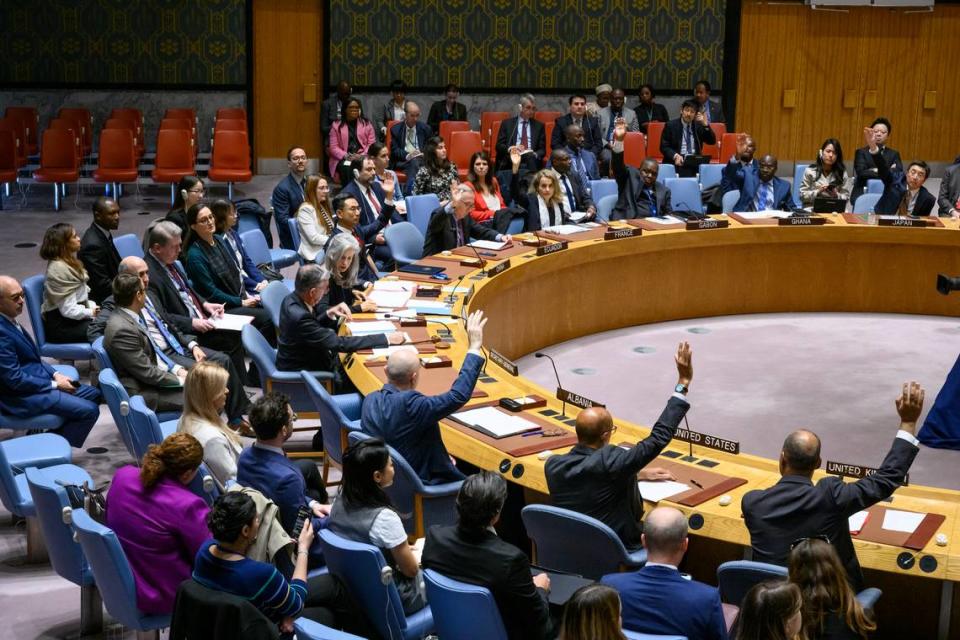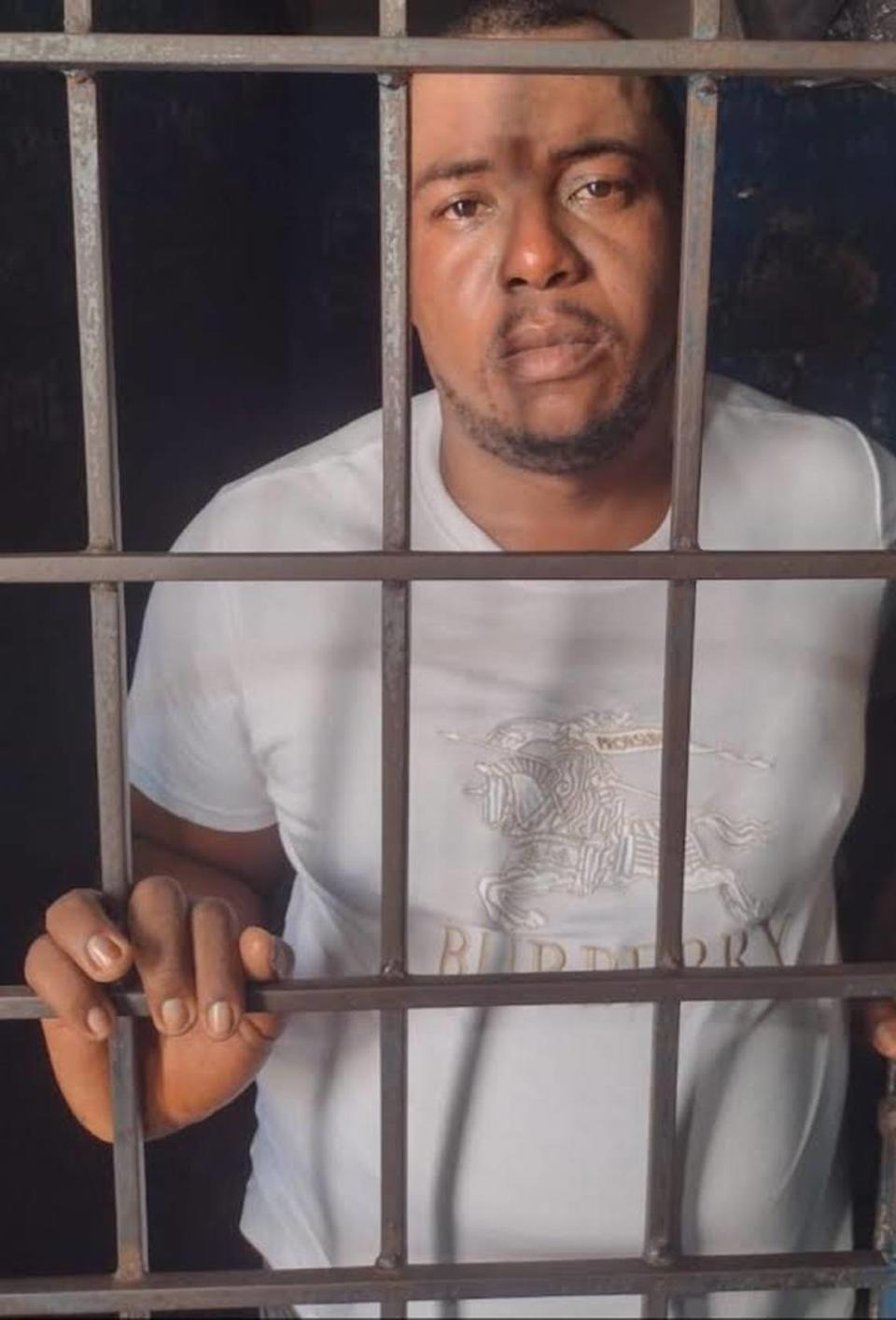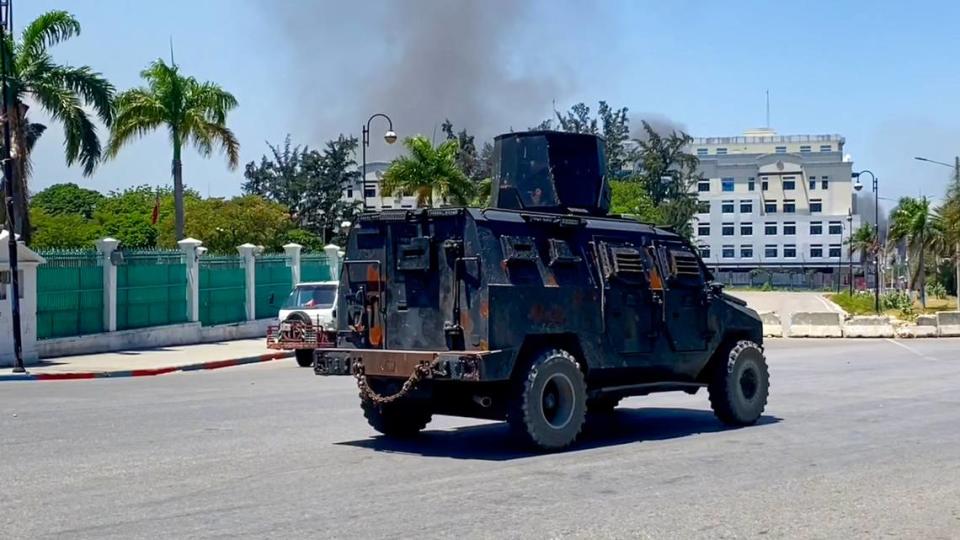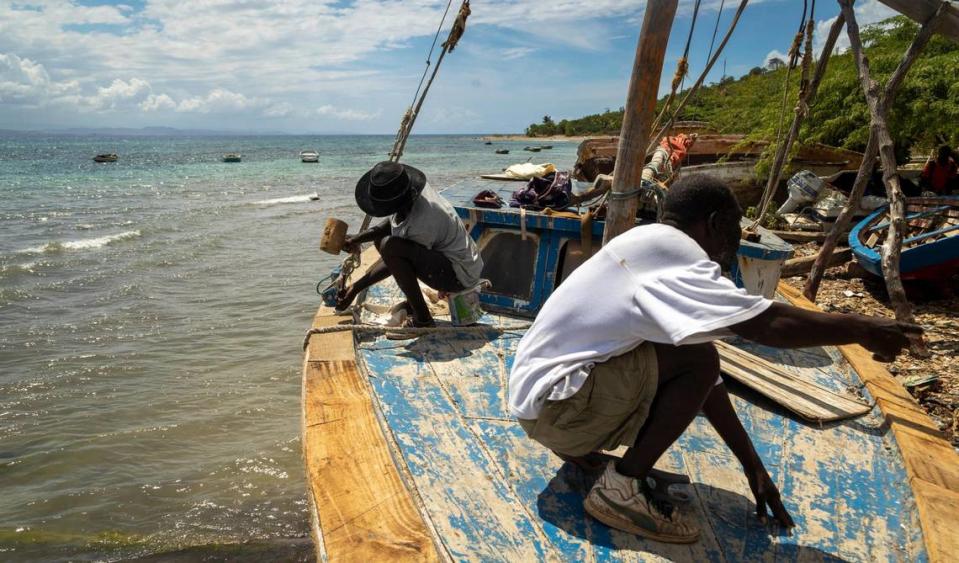A month into the violent siege of Haiti’s capital by gangs, here’s where things stand
Haitians are continuing to flee the surge in violence in their country’s capital while all domestic and international flights in and out of Port-u-Prince remain suspended. The worsening situation and lack of movement, both by those inside and outside of Haiti, led one of the country’s leading journalists, Roberson Alphonse, to ask this week whether Haitians lives don’t count in the eyes of the international community. “We are people,” he said on Port-au-Prince’s Magik 9 radio station. “The lives of Haitian ought to count.”
Here are where things stand in Haiti as scenes of destruction continue to play out in Port-au-Prince, where thousands continue to be forced out of their homes and into soiled encampments amid spreading disease and a lack of medicine and medical care:
▪ Transitional Presidential Council: Members of the newly proposed leadership body and current members of the government met separately late Wednesday. One group was finalizing a political agreement on the council, while the other was discussing the executive order needed to formalize it. While the council of ministers has been accused of delaying the panel’s creation by questioning its constitutionality and raising questions about the lack of supporting documents for its approval, the presidential panel’s seven voting members and two non-voting observers are still dealing with internal strife of their own, despite some progress. Among the questions they are confronting: What will constitute a consensus: four out of seven votes? Or a super-majority of five? How will abstentions count? Will the leader of the panel be called president, or coordinator? The panel still has to hire a prime minister and figure out how to stem the tide of violence currently engulfing Port-au-Prince.
▪ Airports: A month after gunfire hit planes, the Toussaint Louverture International Airport and the Guy Malary National Airport remain closed due to the suspension of foreign and domestic flights. The Haiti National Police and Armed Forces of Haiti continue to maintain control of the airport in a level of cooperation not seen in years. Meanwhile, helicopters are buzzing through the skies airlifting people to the northern city of Cap-Haïtien, where foreign embassies are evacuating their nationals out of the country.
▪ Seaport: The government-owned seaport is out of commission and hundreds of cargo containers remain under the control of gangs. Vessels are docking and unloading some petroleum, food and basic products and some cargo at private ports.
▪ Rare books and documents: Nothing has been off limits in the ongoing gang siege of Port-au-Prince: not hospitals, schools, police stations and not even rare books. Armed gangs on Wednesday stormed and looted the Bibliothèque Nationale d’Haïti, the carrier of more than 200 years of Haitian history and cultural heritage. During the invasion, in which gunmen carried away furniture, an SOS was sent out over live radio asking the Haitian National Police to intervene.
▪ Haiti’s heritage: The representative of the United Nations Educational, Scientific and Cultural Organization, better known as UNESCO, in Haiti has condemned the attacks on the country’s cultural and educational institutions. This includes not only the National Library but also the National School of Arts, which has influenced Haitian art around the world through its development of artists, and the École Normale Supérieure, the oldest teaching training institution in the country. The latter had at least six of its classrooms torched on March 28.

▪ Silence: The U.N. Security Council has not issued a resolution about the surge in violence, but another international organization broke its silence. The Organization of American States approved a resolution Wednesday endorsing a March 11 agreement in Jamaica to form the transition presidential panel.
▪ Kenya: Not much has been heard from the East African nation, which put its deployment of police to Haiti on hold, citing the resignation of Prime Minister Ariel Henry after he was forced to step down by Washington. The deployment of 1,000 Kenyan police officers has been stymied by both legal challenges in Nairobi and money. Kenya has said someone needs to foot the bill.
▪ Money: The U.N. and the U.S. continue to have a hard time raising money for the security mission to Haiti. A trust fund to finance the deployment of the Multinational Security Support mission, led by Kenya, still only has $10.8 million, far less than the $200 million Kenya is looking for to deploy. “It’s not moving up in any way,” Stéphane Dujarric, spokesman for U.N. Secretary-General António Guterres, said Thursday. “So the results are what we talk about here every day.”
Dujarric said while they’ve seen a number of countries say they’re willing to send police officers and personnel, there are others that have the money and the equipment to also help them, but not stepping up. “The longer this takes, the worse things get, right? And we’ve been cataloging that downward spiral I think very clearly,” he said.
The Biden administration, which has now pledged $300 million for the security force, is also still at odds with skeptical GOP lawmakers over money for the mission. House Foreign Affairs Committee Chairman Michael McCaul and Senate Foreign Relations Committee Ranking Member James Risch have yet to approve an initial $40 million the State Department is requesting. But they aren’t the only ones not willing to write check: Only $45 million has been raised for humanitarian response. The U.N. is seeking more than $600 million.
▪ Armed gangs: They are continuing their path of destruction as they turn downtown Port-au-Prince into a battlefield. This week they threatened a take over of the country’s largest hospital and they continued to take aim at the National Palace, injuring at least four police officers. They also launched attacks on new neighborhoods of the capital.

▪ Arrests: Haiti National Police on Thursday arrested the alleged third leader of the Savien criminal gang in the country’s Artibonite Valley. Gladymir Joseph, 38, who is known as Dèdè, was arrested by anti-drug trafficking officers detached to the Hugo Chavez International Airport in Cap-Haïtien at about 9 a.m. as he prepared to fly to the Miami. Police said that Joseph is presumed to be a member of several gangs operating in the capital and in other provinces of the country.
▪ Who’s in charge: Haiti’s Prime Minister Ariel Henry, who said he would resign after the installation of the presidential council, remains locked out of the country after his charter plane was prevented from landing in the Dominican Republic. Haitian authorities are not saying where he is, but his substitute, Finance Minister Michel Patrick Boisvert, continues to act in his place.
▪ State of emergency: In a communique, the government of Haiti says a State of Emergency remains in effects of of Thursday until Wednesday, May 3. All demonstrations on public streets in the region that includes Port-au-Prince remains banned and police have been ordered to use all legal means to enforce a curfew.

▪ Humanitarian crisis: The International Organization for Migration, a U.N. agency, says the humanitarian situation is worsening. More than 53,000 people have fled the capital in less than three weeks. Most people have headed south, requiring them to travel on public buses through gang-controlled roads and neighborhoods. Those staying put and living in camps face deplorable conditions with limited access to food, healthcare, water, psychological support and even toilets.
“While assistance provision was easier during the aftermath of earthquakes, today it is an increasingly daunting task,” said Philippe Branchat, head of the organization in Haiti. “Humanitarian staff, including our own, are facing unparalleled security challenges, balancing the imperative to assist others with the stark realities of personal risk and displacement.”
The U.N. announced Thursday that Emergency Relief Coordinator Martin Griffiths has allocated $12 million from the Central Emergency Response Fund to help people affected by the violence. The money will go toward providing food, water, protection, healthcare, sanitation and hygiene to displaced people and host communities in Port-au-Prince and the neighboring department of Artibonite, Dujarric said.
READ MORE: In Haiti, hope amid the human toll of a deconstructed state
▪ Healthcare: Three out of four women and children lack access to essential public health and nutrition services in metropolitan Port-au-Prince, UNICEF reports. The attacks on healthcare facilities continue to aggravate the already dire situation for people.

▪ Deportations: Despite the lack of food, medications and the gangs overruning Port-au-Prince, Haitians are still being turned away by the Dominican Republic, The Bahamas and the Turks and Caicos Islands. The International Organization for Migration says 13,000 migrants were forcibly returned to Haiti by neighboring countries in March, 46% higher than the previous month.

